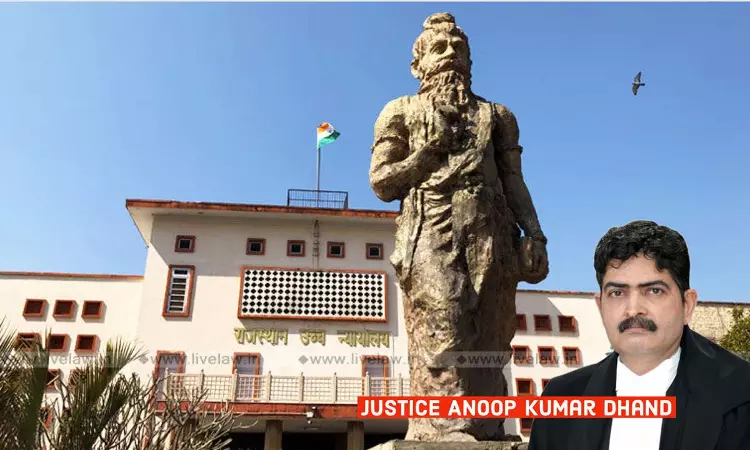- Home
- /
- High Courts
- /
- Rajasthan High Court
- /
- 'Hidden Extraneous Considerations':...
'Hidden Extraneous Considerations': Rajasthan High Court Slams State For Allotting Land Meant For School To Construct Hostel
Nupur Agrawal
28 May 2025 11:00 AM IST
The Rajasthan High Court held that land reserved for the purpose of construction of school could not be allotted for the purpose of construction of hostel that too at a very lower reserve price of only 5%, as opposed to Rule 18 of Rajasthan Municipalities (Disposal of Urban Land) Rules, 1974 (“the Rules”).While calling the allocation as illegal and without any justification, the bench...
The Rajasthan High Court held that land reserved for the purpose of construction of school could not be allotted for the purpose of construction of hostel that too at a very lower reserve price of only 5%, as opposed to Rule 18 of Rajasthan Municipalities (Disposal of Urban Land) Rules, 1974 (“the Rules”).
While calling the allocation as illegal and without any justification, the bench of Justice Anoop Kumar Dhand opined that there were certain “hidden extraneous considerations behind the entire action of the State for allotment of land in question” in favour of the respondent society.
The Court was hearing a petition filed on behalf of Sanadhya Gaur Brahmin Samaj against the order passed by the State wherein a land was allotted to the respondent under Rule 18 of the Rules.
The petitioner had submitted an application for allotment of the land for the purpose of construction of an educational institution and a temple. However, the land was allotted to Porwal Jain Samaj (“respondent”) for construction of hostel.
Such allocation was done at the price of 5% of the sanctioned reserve price. Against this application, the petitioner approached the Court.
It was the case of the petitioner that the allocation was in utter violation of the Rule 18 of the Rules as per which any land could be allotted to the public and charitable institutions on payment of 50% of the sanctioned reserve price. However, the allocation made to the respondent was only at 5% of the reserve price.
Furthermore, the petitioner highlighted that while rejecting its application, the reasoning provided by the State was that the land was reserved for the purpose of establishment of school. However, ironically, the land was allotted to the respondent for construction of hostel over the petitioner whose submitted purpose was to establish a school.
On the contrary, the counsel for the State submitted that under Rule 31 of the Rules, the State had the power to relax the provisions in relation to price, interest, size of plot etc., hence, the land could have been provided at a lesser price to the respondent.
After hearing the contentions, the Court agreed with the arguments put forth by the petitioner, while rejecting the submissions of the State. It was highlighted that,
“Perusal of Rule 31 of the Rules of 1974 indicates that only in exception cases, where the State Government is satisfied that operation of the said Rules causes hardship in any particular case or where the State Government is of the opinion that it is necessary or expedient in public interest to do so, may relax the provisions of these Rules.”
In this light, it was opined that the allotment order of the State did not indicate exercise of powers under Rule 31 or any grounds based on which respondent's case was treated as an exceptional one. Hence, it was held that the present situation could not be considered to be an exception.
Further, reference was made to an earlier decision of the Court in the case of Jhulelal Charitable and Education Trust v. the State of Rajasthan in which the land was allotted at only 25% of the reserve price, and was ruled to be illegal for violating Rule 18 of the Rules.
In this background, the Court opined that, “It appears that there were certain hidden extraneous considerations behind the entire action of the State for allotment of land in question in favour of the respondent No.4. The respondent-State have failed to satisfy this Court as to why the land, which was reserved for School, has been allotted to the respondent No.4 for construction of hostel and why the allotment has been done at a very meager and petty price of 5% of the sanctioned reserve price when the reserved sanctioned amount was 50%.”
Accordingly, the allotment order was ruled to be illegal and contrary to law which could not be sustained by the Court, and thus was set aside. Both the parties were given liberty to apply afresh before the State for land allotment.
Title: Hari Narayan Sharma v State of Rajasthan & Ors.
Citation: 2025 LiveLaw (Raj) 183

